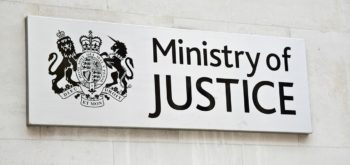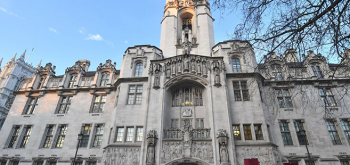Ahead of MPs debating the Legal Aid, Sentencing and Punishment of Offenders Bill this afternoon a group of 24 national charities including Mind, Scope, the RNIB, Mencap, and Leonard Cheshire Disability called on Parliament to protect disabled people from the legal aid cuts. The charities as part of the Justice for All campaign warned that government risks creating a ‘perfect storm’ for disabled people if legal help with challenging benefit decisions is scrapped as the welfare system is radically overhauled.
According to Richard Hawkes, chief executive of Scope, some 78,000 disabled people per year would be denied legal help if welfare benefits advice is no longer covered by legal aid as part of the bill which proposes to cut £350m from the £2.2 billion legal aid bill. Legal advice was vital for disabled people ‘if they fall foul of poor decision-making, red tape or administrative error, and this makes it crucial to the success of the government’s welfare reforms’. ‘For welfare reform to work disabled people have to get support to appeal decisions relating to their benefits, especially within a system where errors are commonplace,’ he said.
James Sandbach of Citizens Advice, pointed out that during the introduction of Employment and Support Allowance (‘a much smaller change than the shift to Universal Credit’)- Citizens Advice Bureaux saw demand for advice increase by 40%. ‘We suspect the shift to Universal Credit, which will affect 19 million individuals, will not work first time for everyone, and independent advice on how to challenge a decision will be vital for individuals and the success of the system.’
Campaigners are also calling on the government to relax an overly strict definition to legal aid. A report by the National Federation of Women’s Institutes (NFWI), entitled Legal Aid is a Lifeline, which claims that too narrow a definition of domestic violence would deprive many vulnerable women of the protection they need (as reported yesterday in the Guardian here). The legal aid bill makes ‘domestic violence’ a precondition for legal aid to access any private family law advice. There were 211,000 family cases last year where people received initial advice and assistance under the family ‘legal help’ scheme alone.
Ministers’ definition of ‘domestic violence’ has been a focus of campaigners’ concern. Ordinary people, the courts and the police understand the phrase to encompass ‘emotional’ as well as ‘physical’ violence. The government proposed that legal aid be restricted to physical violence and only where there was ‘clear objective evidence’ of domestic violence.
London’s mayor, Boris Johnson, joined the growing number of critics on this point. In written evidence submitted to the Public Bill Committee, he wrote that ‘despite recognition in the Bill of the need to ensure that victims of domestic violence are eligible for legal aid’ most would be ineligible ‘due to the restrictive evidence that they will be required to present’. He continued: ‘Research tells us that as with all forms of violence against women, there is significant under-reporting therefore, the requirements for ongoing criminal proceedings or evidence of a referral to a Multi-Agency Risk Assessment Conference as criteria for eligibility will make it impossible for the majority of women experiencing domestic violence to access legal aid.’
Also ministers have explicitly ruled that undertakings to the court that a man (or woman) will not assault his (or her) partner are not in themselves ‘sufficiently clear, objective evidence of domestic violence’. This means victims of violence will be forced to push for a court order and that will serve only to antagonize parties. You can read more here.






